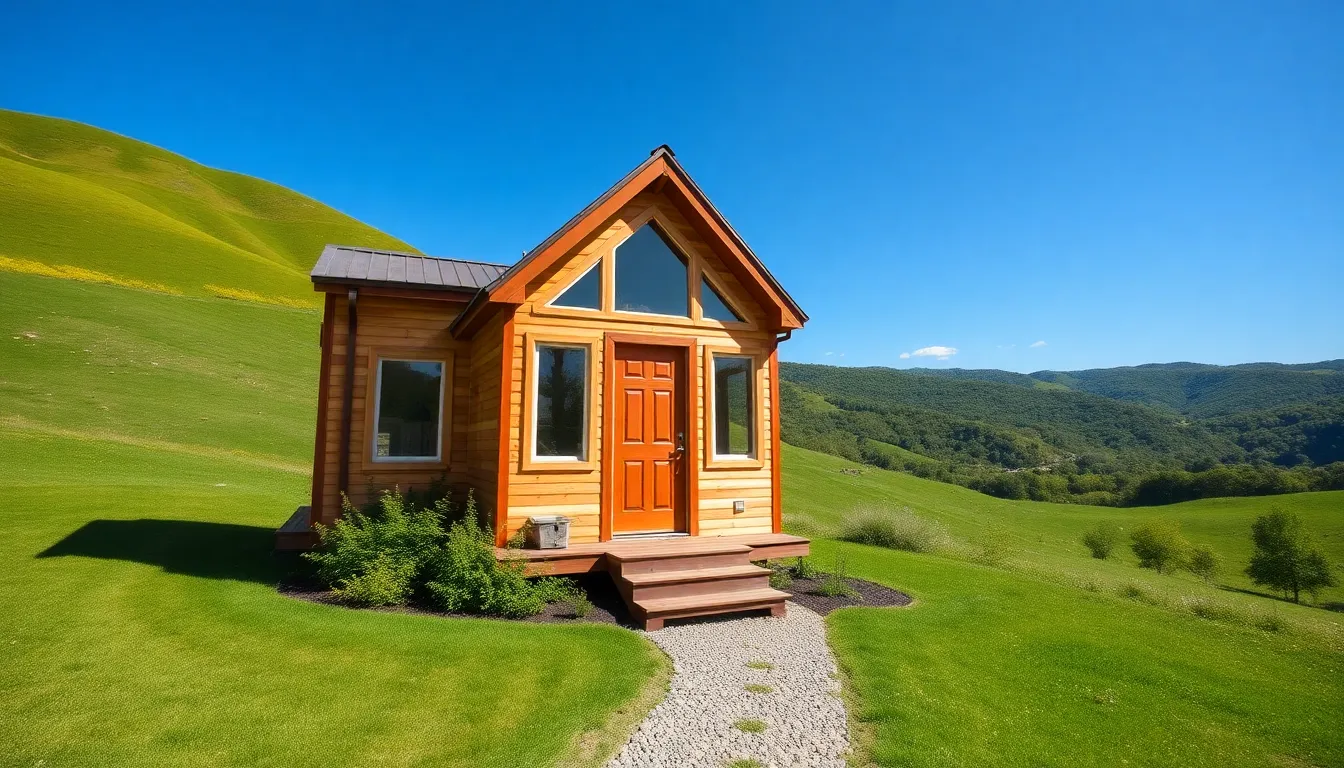Imagine living in a cozy, beautifully designed home that doesn’t drain your wallet. Sounds like a dream? Well, wait until you hear about FHA loans for manufactured homes. They’re not just another mortgage option: they’re the golden ticket for many homebuyers who want flexibility and affordability wrapped up in one neat package. Whether you’re a first-time buyer or looking to downsize, these loans might just be the perfect fit. So, let’s jump into the nitty-gritty of FHA loans and uncover how they can transform your dream home into a reality.
Table of Contents
ToggleWhat Are FHA Loans?

FHA loans, or Federal Housing Administration loans, are government-backed mortgages designed to help lower-income and first-time homebuyers. Established in the 1930s, these loans are aimed at making homeownership more accessible, particularly for people who might struggle with conventional mortgages. The key selling point here? Lower down payment requirements and less stringent credit score criteria.
By providing more flexibility, FHA loans have become a popular choice, especially for manufactured homes. This type of housing, often considered a more affordable option, is sometimes left out in the cold by traditional lenders. But not with FHA. They open the door for many who might otherwise miss out on homeownership.
Eligibility Criteria for FHA Loans
So you’re interested in an FHA loan? Great choice. But hold your horses, there are eligibility criteria you need to meet. First and foremost, borrowers must have a credit score of at least 500 to qualify, although those with higher credit scores enjoy better terms.
You’ll also need a steady income, typically shown through W-2 forms or tax returns. Next up, debt-to-income ratio is a big factor: lenders usually prefer this to be 43% or lower. And if that’s not enough, you’ll need to be prepared for the down payment, which can be as low as 3.5% for those with qualifying credit scores.
Importantly, the home itself must meet FHA standards, which includes being livable and safe. This isn’t a free-for-all: the regulations are there to protect both the lender and the borrower.
Benefits of Using FHA Loans for Manufactured Homes
Why choose an FHA loan for a manufactured home? The advantages are plentiful. For starters, the low down payment requirements make homeownership feasible for many who might be struggling financially.
Also, these loans allow for more flexibility in terms of the property itself. As long as the manufactured home meets specific safety and quality guidelines, buyers can take advantage of affordable housing without very costly.
Also, FHA loans are assumable, which means if you decide to sell your home later, the new buyer can take over your loan rather than needing to secure financing of their own. This can create a smoother transition and potential marketability advantage when it comes time to sell.
How to Apply for an FHA Loan for a Manufactured Home
Applying for an FHA loan is more straightforward than you might think. First, find a lender that offers FHA loans specifically for manufactured homes. Not all lenders do this, so it’s essential to do your assignments.
Once you’ve found a lender, gather the necessary documentation. This typically includes income verification, credit score information, and evidence of any assets you may have. Then, fill out the loan application forms, which you can usually do online or in person.
After submission, the lender will review your information and conduct a credit check. If approved, you’ll receive a pre-approval letter that indicates how much you can borrow. Next, a licensed appraiser will assess the value of the manufactured home to confirm that it meets the FHA’s standards. Finally, if everything checks out, you’ll attend the closing meeting, and voila, you’re a homeowner.
FHA Loan Types for Manufactured Homes
FHA loans come in various flavors, each designed to meet different needs. The most common types include:
- FHA Title I Loans: Specifically for manufactured homes, these loans cover the cost of purchasing, replacing, or refinancing the home. They’re great for buyers who may not own land or prefer to rent the land.
- FHA Title II Loans: These loans can be used to purchase both the manufactured home and the land it resides on. They typically involve stricter guidelines, but they offer a complete package for those looking to establish roots.
Understanding these types can help buyers make informed decisions based on their unique housing circumstances.
Challenges and Considerations
While FHA loans for manufactured homes offer numerous benefits, there are some challenges to consider. One of the most significant hurdles is finding a lender that not only provides FHA loans but also specializes in manufactured homes. This isn’t universally available, making your lender choice crucial.
Also, manufactured homes must meet stringent guidelines set by the FHA. These requirements can include specifications about size, construction standards, and whether the home is on a permanent foundation. Non-compliance could lead to denial of the loan or less favorable terms.
Finally, while the upfront costs may be low, borrowers should also be aware of other fees associated with FHA loans, including mortgage insurance premiums that may add to the long-term cost of their investment.






